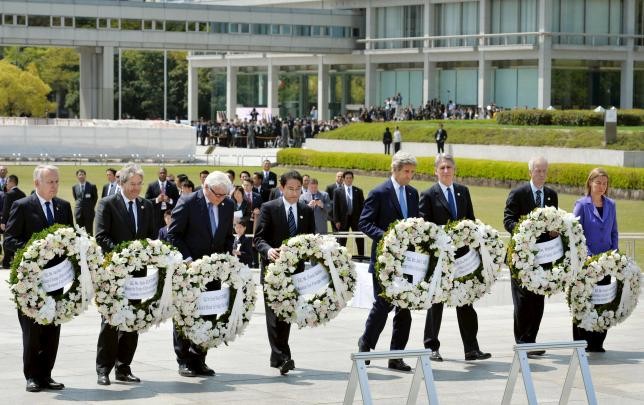China has expressed strong displeasure on Tuesday, April 12, on the statement issued by foreign ministers attending the Group of Seven (G7) meeting regarding disputes in the East and South China Seas, the Xinhua News Agency reported.
One of the four statements was on maritime security, which expressed "concerns over the situations in the East and South China Seas" and "opposed any intimidating, coercive, or provocative unilateral actions that could alter the status quo and increase tensions."
The foreign ministers issued the statement despite calls from Chinese Foreign Minister Wang Yi on Saturday, April 9, asking them to refrain from playing up with the maritime dispute issue.
The G7 convened on Sunday, April 10, in Hiroshima, Japan, attended by foreign ministers from Britain, Canada, France, Germany, Italy, Japan and the United States.
"We urge the G7 member states to honor their commitment of not taking sides on issues involving territorial disputes," Chinese Foreign Ministry spokesman Lu Kang said in response to the statement issued by the foreign ministers on Monday, April 11.
The G7 bloc should have focused on global economic governance and cooperation, as the world economic recovery is still weak, rather than hyping up the disputes, Lu remarked.
"China's stance on the East and South China Seas are consistent and clear," the spokesman said, adding that the structures on the Nansha Islands and its reefs are within China's sovereignty. He also pointed out that the freedom of navigation and overflight in the East and South China Seas has not been restricted.
Lu reiterated China's commitment to resolve the disputes with countries involved, through negotiation and in line with international law with respect for historical facts, to preserve stability and peace in the area while protecting its maritime rights and territorial sovereignty.
Visiting British Foreign Secretary Philip Hammond was also told by Wang that China is hoping that Britain will not take sides on the issue and adopt an objective and fair stand.
Reiterating China's stance on Hong Kong, Wang stressed that the Hong Kong affair is part of the country's internal affairs and that the central government will adhere to the principles of "one country, two systems" and "Hong Kong people governing Hong Kong" with a high degree of autonomy.
The Chinese foreign minister expressed appreciation of the side remarks by Britain, dismissing calls for "Hong Kong independence."
The minister also urged China and the U.K. to continue with close high-level exchanges and improve mutual understanding and trust, which he said would ensure the beginning of "golden era" between the China-U.K. relations.
According to Wang, the countries are now expanding cooperation in various fields as part of the results of President Xi Jinping's state visit to Britain in October last year.
The two ministers exchanged views on two global issues: the political settlement process in Syria and the Korean Peninsula nuclear issue.



























